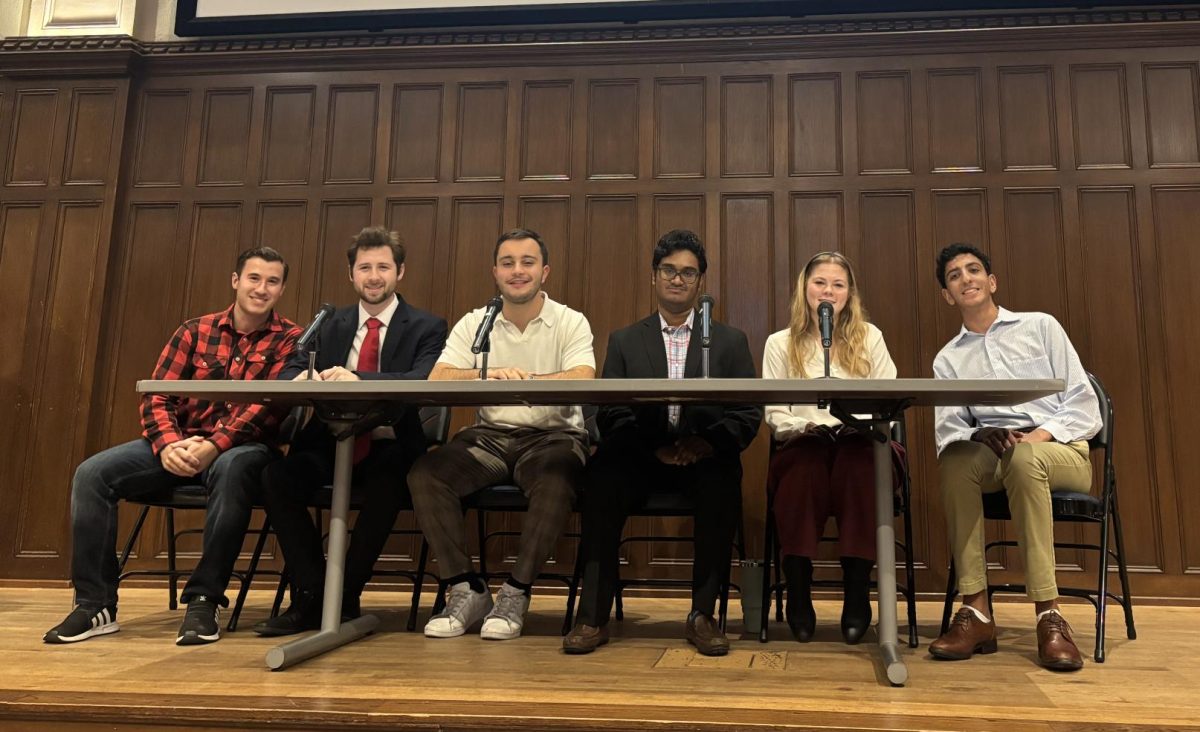By Kathryn Roberts

Fordham offers a selection of foods to serve those with special dietary restrictions, but some find these accomodations inadequate.
Kent State University and Cornell University opened their own gluten-free dining halls for students who have celiac disease or a gluten allergy, according to a recent article from The New York Times.
Fordham is home to several eateries and a large dining hall for each campus, which have options for vegetarian, vegan, gluten-free and other common dietary groups.
With the aforementioned universities creating whole cafeterias for gluten-free students, there lies more possibility for college students with specific dietary needs and allergies.
Fordham does have gluten-free options on campus, but for some individuals with severe gluten allergies and celiac disease, wheat is not an option.
“Occasional pre-packaged sandwiches in The Grille [Urban Kitchen] and the limited options at the Naked station in the cafeteria are not enough,” said Madison Shyer, FCRH ’20.
The Naked station carries three items: (typically) a meat/fish, a carb and a vegetable. It also carries salads and fruit smoothies. However, if you do not like one of the above, it is not an entirely satisfying meal, according to Shyer.
“They’re not terribly filling foods, unfortunately,” said Shyer.
The Naked Station is accommodating for many, though. It presents dishes that refrain from using seven of the eight most popular food allergens: egg, milk, peanut, tree nuts, shellfish, soy and wheat.
The gluten-free products that bth FCRH and FCLC carry are listed on the Fordham Campus Dining web page.
Items like gluten free pizza, pasta and sandwiches are available, but typically only upon request.
Gluten-free cafeterias are currently attracting prospective students. They allow students with celiac disease and other gluten illnesses to be comfortable with the food they are eating, while at the same time provide these students with an atmosphere of other students who are in the same position, according to The New York Times.
Celiac disease is an auto-immune disorder where the consumption of gluten damages the small intestines. Currently one in 100 people is affected by it.
Shyer said that even though the meal plan is necessary, she does not mind having it. It is the problem of not having appropriate access to gluten-free foods that gets in her way.
As a Rose Hill student, she feels that there is nowhere outside of campus that truly satisfies her diet. Arthur Avenue, while delicious, is nothing but a lot of gluten, she said.
“Within our retail locations we offer a variety of grab-and-go options such as gluten free sandwiches, wraps and snacks. Several retail locations also offer made-to-order options that are made without gluten,” said Fordham’s registered dietitian, Melanie Simeone.
The key to encouraging change is to speak up to Fordham Dining, according to Simeone.
“Our customer needs and food trends are very fluid and I strongly encourage students with ideas and suggestions to contact us so that we can ensure the satisfaction of our students,” said Simeone.









































































































































































































krockelein • Apr 27, 2017 at 4:39 pm
I brought my sister with Celiac to eat in the caf once and there was no food out at the naked station. A swipe costs at least $10 and for 30 minutes there was no food! Eventually they brought out bacon leftover from breakfast, and my sister requested a wrap when someone came to administer the station. Then she wanted to warm the make-shift bacon wrap (so nutritious) the gluten free panini press was off. Aramark staff almost put her food in a contaminated, gluten-used oven! What a lack of knowledge on cross contamination. I was embarassed.